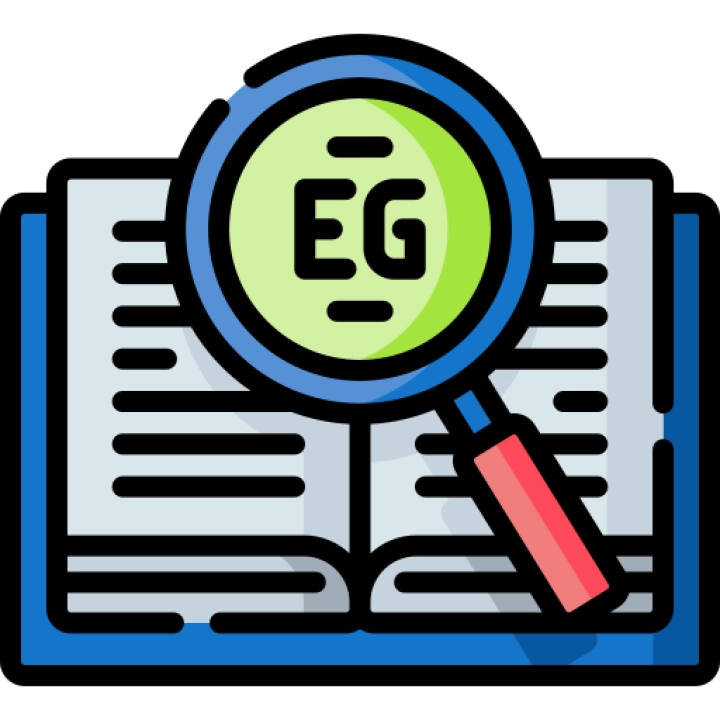Faculty: Arts and Sciences
The English Language and Literature major combines the study of English with the exploration of literary texts. Students develop skills in linguistics, literary analysis, critical theory, and creative writing. Graduates are prepared for careers in education, publishing, journalism, cultural institutions, and creative industries.
Learning Objectives:
- Understand the fundamentals of English language structure and literature.
- Develop skills in linguistic analysis, literary criticism, and creative writing.
- Learn techniques for interpreting and analyzing literary texts and cultural artifacts.
- Explore principles of linguistics, literary history, and cultural studies.
- Analyze and interpret literary and linguistic data and trends.
- Develop critical thinking, analysis, and writing skills for effective linguistic and literary studies.
Main Outline:
- Introduction to English Language and Literature
- Overview of key concepts, periods, and movements in English language and literature.
- Fundamentals of linguistics, literary history, genres, and critical approaches.
- Linguistics
- Principles of linguistics, including phonetics, grammar, semantics, and pragmatics.
- Techniques for analyzing language structure and usage.
- Literary Analysis and Critical Theory
- Principles of literary analysis and critical theory, including formalism, structuralism, post-structuralism, and postcolonialism.
- Techniques for applying diverse critical theories to literary texts.
- British Literature
- Survey of British literature from the medieval period to the present, including key authors, works, and movements.
- Techniques for analyzing and interpreting British literary texts in their historical and cultural contexts.
- American Literature
- Study of American literature from the colonial period to the present, including key authors, works, and movements.
- Techniques for analyzing and interpreting American literary texts in their historical and cultural contexts.
- World Literature in English
- Study of world literature written in English, including postcolonial literature, Commonwealth literature, and global English literature.
- Techniques for analyzing and interpreting global literary texts in their cultural and political contexts.
- Creative Writing
- Principles of creative writing, including fiction, poetry, and non-fiction.
- Techniques for developing and refining creative writing skills.
- Practical/Applied Training
- Real-world experiences in literary and cultural settings, including internships in publishing houses, cultural institutions, or educational organizations.
- Application of acquired skills in practical literary and cultural scenarios.
- Capstone Project in English Language and Literature
- A comprehensive project applying skills in linguistic analysis, literary criticism, or creative writing.
- Presentation of a refined literary analysis, cultural studies project, or creative writing portfolio.
Assessment Methods:
- Linguistic analysis essays, literary criticism papers, British and American literature studies, world literature projects, creative writing portfolios, internship reports, capstone projects, group projects, and presentations.
Recommended Textbooks:
- "English Language and Literature" by various authors.
- "Linguistics" by various authors.
- "Literary Analysis and Critical Theory" by various authors.
- "British Literature" by various authors.
- "American Literature" by various authors.
- "World Literature in English" by various authors.
- "Creative Writing" by various authors.
Prerequisites:
Basic knowledge of literature and linguistics and an interest in English language and cultural analysis.
Duration of the Major:
Usually 4 years for a Bachelor's degree, including coursework, internships, and capstone projects. For advanced practice, a Master’s degree in English Language and Literature, which typically takes an additional one to two years, can be pursued.
Degree:
Graduates can earn a degree in English Language and Literature and pursue further education or professional certificates in specialized fields of literary studies or linguistics.
Target Audience:
Aspiring teachers, publishers, journalists, cultural critics, creative writers, and researchers seeking careers in education, publishing, journalism, cultural institutions, and creative industries. This major equips students with the analytical, critical, and creative skills needed to excel in English language and literature studies, supporting careers in various literary and cultural roles and industries.















